Related Research Articles
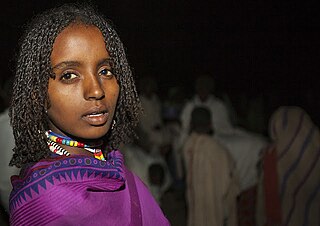
The Oromo people are a Cushitic ethnic group native to the Oromia region of Ethiopia and parts of Northern Kenya. They speak the Oromo language, which is part of the Cushitic branch of the Afroasiatic language family. They are one of the largest ethnic groups in Ethiopia. According to the last Ethiopian census of 2007, the Oromo numbered 25,488,344 people or 34.5% of the Ethiopian population. Recent estimates have the Oromo comprising 45,000,000 people, or 35.8% of the total Ethiopian population estimated at 116,000,000.
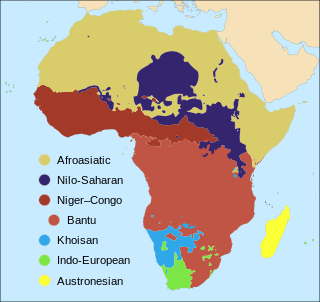
The number of languages natively spoken in Africa is variously estimated at between 1,250 and 2,100, and by some counts at over 3,000. Nigeria alone has over 500 languages, one of the greatest concentrations of linguistic diversity in the world. The languages of Africa belong to many distinct language families, among which the largest are:
Amharic is an Ethiopian Semitic language, which is a subgrouping within the Semitic branch of the Afroasiatic languages. It is spoken as a first language by the Amharas, and also serves as a lingua franca for all other populations residing in major cities and towns in Ethiopia.
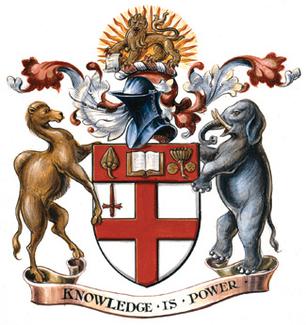
The School of Oriental and African Studies is a public research university in London, England, and a member institution of the federal University of London. Founded in 1916, SOAS is located in the Bloomsbury area of central London.

Oromo, historically also called Galla, a pejorative term given by others, is an Afroasiatic language that belongs to the Cushitic branch. It is native to the Ethiopian state of Oromia and northern Kenya and is spoken predominantly by the Oromo people and neighboring ethnic groups in the Horn of Africa. It is used as a lingua franca particularly in the Oromia Region and northeastern Kenya.

Yoruba is a language that is spoken in West Africa, primarily in Southwestern and Central Nigeria. It is spoken by the Yoruba people. Yoruba speakers number roughly 47 million, including about 2 million second-language speakers. As a pluricentric language, it is primarily spoken in a dialectal area spanning Nigeria, Benin, and Togo with smaller migrated communities in Côte d'Ivoire, Sierra Leone and The Gambia.

The languages of Ethiopia include the official languages of Ethiopia, its national and regional languages, and a large number of minority languages, as well as foreign languages.

There are over 525 native languages spoken in Nigeria. The official language and most widely spoken lingua franca is English, which was the language of Colonial Nigeria. Nigerian Pidgin – an English-based creole – is spoken by over 60 million people.

The writing systems of Africa refer to the current and historical practice of writing systems on the African continent, both indigenous and those introduced. In many African societies, history generally used to be recorded orally despite most societies having developed a writing script, leading to them being termed "oral civilisations" in contrast to "literate civilisations".
George Percy Bargery was an English missionary and linguist from Exeter, Devon.
Martin Orwin is a British linguist, scholar and writer, specializing in the languages and cultures of the Horn of Africa.
Paul Newman is an American linguist active in the study of African languages. He writes on the Hausa language of Nigeria and on the Chadic language family. He wrote the Modern Hausa-English Dictionary (1977), co-authored with his wife, Roxana Ma Newman, and The Hausa Language: An Encyclopedic Reference Grammar (2000). He is the founder of the Journal of African Languages and Linguistics, a journal in the field of African-language studies.
David Appleyard is a British academic and an specialist in Ethiopian languages and linguistics.

The Harari people are a Semitic-speaking ethnic group which inhabits the Horn of Africa. Members of this ethnic group traditionally reside in the walled city of Harar, simply called Gēy "the City" in Harari, situated in the Harari Region of eastern Ethiopia. They speak the Harari language, a member of the South Ethiopic grouping within the Semitic subfamily of the Afroasiatic languages.
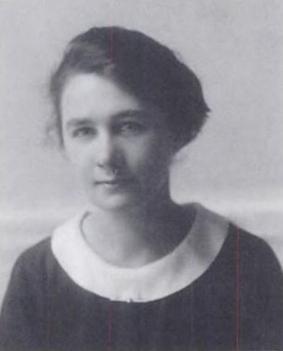
Lilias Eveline Armstrong was an English phonetician. She worked at University College London, where she attained the rank of reader. Armstrong is most known for her work on English intonation as well as the phonetics and tone of Somali and Kikuyu. Her book on English intonation, written with Ida C. Ward, was in print for 50 years. Armstrong also provided some of the first detailed descriptions of tone in Somali and Kikuyu.

Arthur Lloyd James was a Welsh phonetician who was a professor at the School of Oriental and African Studies and the linguistic adviser to the British Broadcasting Corporation. His research was mainly on the phonetics of English and French, but he also worked on the phonetics of Hausa and Yoruba. He killed himself while a patient at the Broadmoor Criminal Lunatic Asylum, where he was committed after killing his wife, the violinist Elsie Winifred Owen, in 1941.
David Whitehorn Arnott was a British linguist who was Professor of West African Languages at School of Oriental and African Studies. He is known for his works on Fulani and Tiv.
Beatrice Lilian Honikman was a phonetician of South African origin who taught at SOAS University of London and the University of Leeds. Her special field was the phonetics of African languages.
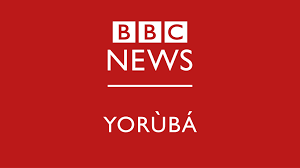
BBC Yoruba is the Yoruba language service of the BBC World Service meant primarily for the Yoruba-speaking communities in Nigeria, Benin Republic, Togo and Yoruba speakers in diaspora. It is part of the 12 new language services incorporated by the BBC World Service. The other languages are Afaan Oromo, Amharic, Gujarati, Igbo, Korean, Marathi, Pidgin, Punjabi, Telugu and Tigrinya.

BBC Igbo is the Igbo language service of BBC World Service meant primarily for the Igbo-speaking communities in the south-east, South-south of Nigeria and Igbo people in diaspora. It is part of the 12 new language services added to the BBC services and the other languages are Afaan Oromo, Amharic, Gujarati, Yoruba, Korean, Marathi, Pidgin, Punjabi, Telugu and Tigrinya.
References
- ↑ "Clifton College Register" Muirhead, J.A.O. p261: Bristol; J.W Arrowsmith for Old Cliftonian Society; April, 1948
- ↑ London Gazette 20 January 1915
- ↑ London Gazette 15 August 1916
- ↑ January 1919 Indian Army List
- ↑ April 1921 Indian Army List
- ↑ George P. Bargery, A Hausa-English Dictionary and English-Hausa Vocabulary. London: Oxford University Press, 1934. 1226p.
- ↑ "Collection Listing A". SOAS. Retrieved 31 March 2023.
- ↑ Jaggar, Philip J. (1992). "Roy Clive Abraham: A Biographical Profile and List of Writings". African Languages and Cultures. 1: 1–4 – via JSTOR.
- Oxford Dictionary of National Biography
- R. G. Armstrong, ‘Roy Clive Abraham, 1890-1963’, Journal of West African Languages, 1/1 (1964), 49-53
- P. E. H. Hair, ‘A bibliography of R. C. Abraham - linguist and lexicographer’, Journal of West African Languages, 2/1 (1965), 63-6
- P. J. Jaggar, ed., Papers in honour of R. C. Abraham (1890-1963) (1992)